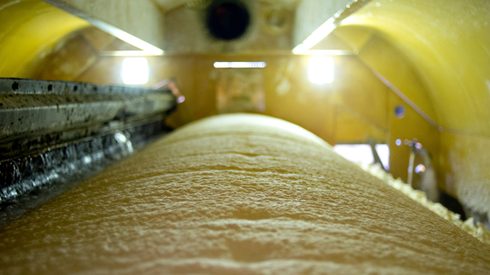Brazilian forest products companies are closely following the development of rules governing global carbon markets as they expect regulation to bring new opportunities for their businesses. Integrated pulp producers that own forests could generate revenues by preserving unharvested areas or investing to offset mills’ emissions.
“This is an industry that works with the recovery of previously degraded areas for both forest cultivation and conservation,” Brazilian Tree Industry (Ibá) executive director José Carlos da Fonseca Jr told Fastmarkets. “Carbon market mechanisms are fundamental instruments to increase the industry’s potential.”
In a recent environmental, social and governance (ESG) impact report, credit rating agency Moody’s indicated that pulp producers in South America “may benefit in the near term from the significant amount of carbon sequestered in the forests they own.”
According to that report, “the potential exists for companies to sell carbon credits tied to unharvested parts of their forests as carbon markets develop in the near future, thereby generating additional income.”
According to Ibá, the 9.55-million hectares of planted forests in Brazil sequester an estimated 1.9 billion tons of carbon dioxide equivalent (CO2eq) over the forests’ lifetimes. Additionally, the industry has more than 6 million hectares of protection areas, which can store almost 2.6 billion tons of CO2eq.
Producers must extract more CO2 from the environment
The key debate, executives noted, is around the idea of additionality, which refers to the introduction of emissions-reductions efforts that would not have occurred in the absence of a market for carbon credits. Forest products companies cannot expect to sell carbon credits equivalent to their existing carbon balance, but must preserve more forests or generate less CO2 in order sell carbon credits.
“Additionality means we have to do something that we haven’t done yet; we have to extract more CO2 from the atmosphere than we already do,” Klabin chief executive officer Cristiano Teixeira said in a virtual meeting with investors. Adding technology to reduce emissions in industrial processes is in the company’s plans, the executive said.
How forest products companies could benefit from carbon credits
The 26th United Nations Climate Change Conference, COP26, held in Glasgow last year, decided on unified and controlled standards for a global carbon market. This includes provisions to avoid a situation where the same emissions reductions are claimed by multiple companies or countries.
COP26 provided the industry with a framework, but detailed rules will have to be designed, which may take time. Still, there is already an expectation that forest products companies could benefit from an increase in the value of carbon credits.
“In the European Union, after COP26, carbon credits’ value rose sharply, from €57 before Glasgow to €90 a few weeks after the conference,” Fonseca noted. “The global regulated carbon market will soon be a new reality, and Brazil cannot let this opportunity pass.”
In order to benefit from a higher market value of carbon credits, Suzano’s CEO Walter Schalka believes companies have to move fast.
“In my perception, carbon credits will have a very significant value in the coming years, but after the energy transition in 2050, they could have no value at all,” the executive said during a meeting promoted by the Brazilian Institute of Corporate Governance. “Whoever enters this market first will be the winner.”
Sustainable projects ahead for Brazil
According to Marina Grossi, the president of the Brazilian Business Council for Sustainable Development, Brazil will have the advantage of entering the market with “the noblest projects related to agroforestry.”
“Market participants outside of Brazil would look to the country for very high-quality carbon credits that would also be cheap in comparison to other regions [due to local currency depreciation],” Grossi said. “Brazil has to sell a kind of carbon credit that is coveted, with projects that are related to biodiversity, emission reductions and transparency.”





